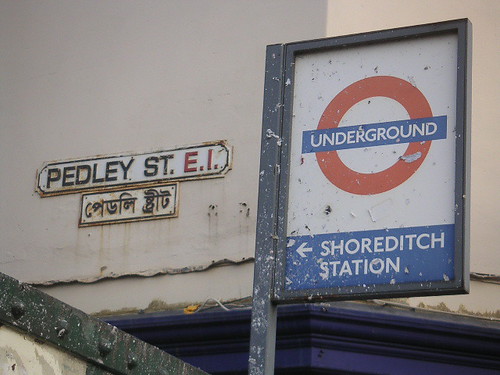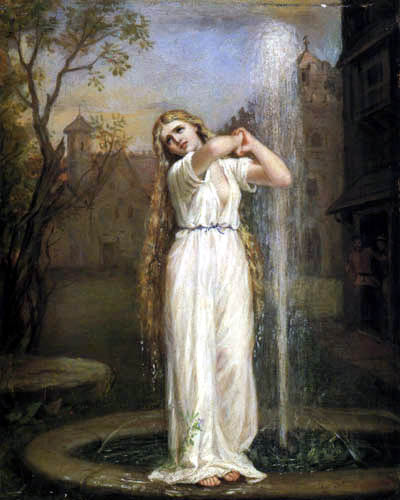"My sisters and I will show you the forgotten cities built of old, where a hundred trapped generations of your kin bred and died when they had been forgotten by you above..."
- Gene Wolfe, 'Book of the New Sun'
Last night was making nauseous laps round my tired frame. Hung over, coming down, my stomach shuddering briefly as I sipped at hot, strong tea. Freeze frame images, alcohol smashed, chemically twisted, unmasked themselves as I sat silently on my sofa. They filled me with joy and acute embarrassment. I rolled a cigarette, drawing painfully on it and grimacing as smoke entered blasted lungs. Arab Strap had been my music of choice this morning. In my weakened mood, a tear welled up in my left eye as ‘Come round and Love Me’ began. I laughed at my ridiculousness. I changed the CD and put on ‘The Shy Retirer’ to remind myself why I was in this state in the first place.
Finishing my cigarette, I wandered into the bathroom where Maria lay, half submerged in the steaming bath, an undine in soapy water. She held a novel, a piece of feminist sci-fi, but seemed to be spending more time keeping it dry than actually reading it.
“Can I have a fag?” she asked, with a yawn.
“Sure.” I sat on the side of the bath and silently rolled her cigarette. I took acute pleasure in this action, as I always did at times like this. I handed it to her, she put it to her mouth and I lit it for her in a classic symbol of Hollywood chivalry. We all like to play these bullshit roles, from time to time. She smiled her half-Venezuelan smile at me, a fleck of bath-foam adhering to her neck, beads of sweat dropping to the hot water, blue cigarette smoke dancing with the steam.
This was two months after we had entered the house. The hot water, the gas, the electrics, all had been sorted out with a combination of favours, fumbling and luck. Scowls from neighbours, but little more. Knocks from the police, ineffectual yet threatening, sweating bullyboys and female bulldogs in tight uniform, itching for a fight.
At times of lumpen awkwardness, I imagined myself as a golem, a creation of my old neighbours in Stamford Hill, as if Rabbi Loew had been reincarnated in N16. A clay-made automaton bearing my features, my tongue a scrap of paper, ‘Emet’ scribbled upon it. Truth. My undine, damp and childless, beautiful beside me, neither of us human yet parodying their ways with sad and futile movements. I, a jerky figure in a German Expressionist Film, Maria a pan-cultural water nymph. All this, I thought as I sat by the bath and watched her smoke, reading feminist sci-fi, steam floating by her ears. Thoughts of how Maria and I had met, six weeks before; a fund-raising gig for a London based Colombian group aiming to set up a social centre somewhere near Cali, in the hot south-west of a misunderstood country. It had been in conjunction with an anti-sweatshop charity that The Poet and I were occasionally involved with, London based and a big factor in reuniting the London punks with radical politics and worthwhile causes. The show had felt like the future, mohawks dancing to Latin rhythms, South Americans dancing to South London ska-punk, some small attempt at creating unity through ideas and common goals rather than fashion or taste in music. Dangerously, recklessly, I hoped.
Rumblings and knockings filtered through to us from upstairs, as Cerise or Jerome rose for the day. The Poet was away, Brighton I remembered him saying. Others were in the house who I had only met the previous evening, but no, nothing, it was a blank. We’d have to resurrect the introductions over muddy morning coffee and innumerable rollups. I left Maria in the bath, her skin now wrinkling as she read of women’s ultimate emancipation in off-world colonies, heading back into the living room, where I had spent the night on an ancient fold out bed. Arab Strap still told tales of infidelity mixed with drug and alcohol abuse; I replaced it with Nick Cave, a song reinterpreting the Odyssey for a modern age. I resumed my own reading, the words sparkling and effervescing in the comedown light. One of Iain Sinclair’s many tomes concerning the area we lived, hyper-real fictions in a blasted landscape, a landscape apparently lost before we even arrived. Some said that he was partly responsible for this vigorous regenerative interest in the borough, fuelling the very fires he sought to extinguish. Maybe. Change is inevitable, but never forget. (and never forget everyone's a fucking artist round here).
The steady concreting-over of the past and the collective amnesia that came with it was damaging us all, stripping away history and culture like bark from a sapling, replacing it with commemorative statues, plaques that tell us what was here, what this used to be. As Chelsea tractors ploughed roads fresh with tarmac, franchise chicken outlets sprang up on Church Street on the sight of a jazz bar turned squat, memory died with the pubs we loved but didn’t frequent enough (Wetherspoons was just that little bit cheaper, right?), and we consumed ourselves with every purchase at Tesco, Svankmajer’s ‘Food’ made depressingly prophetic. Last night, buoyed up on chemical-love for humanity, I had loudly described (as I often did), to a friend-of-a-friend, the Battle of Cable Street. “Mosley preached on Shacklewell Lane!” I had half-shouted. And she had said “I never knew that”.
I paused and considered this sudden riot in my head. Sinclair had indeed fuelled my interest in East London, and Hackney specifically. Distasteful as it was, the place did have a perverse element of bohemia to it that we all relished whether we admitted it or not. But no, fuck that, I thought, we weren't the enemy. We were not the poisonous leeches, the parasites, the remoras that held on as this beast-borough swam it's way through history with it's ally Tower Hamlets, desperate for the echoes of 1888 and the city of dreadful night. We knew all about Yiddish anarchists, Mosley bashers, Hawksmoor, and yeah, the Battle of Cable Street made my heart swell a little with emotion when I thought of it and I didn't fucking care if anyone wanted to sneer at that.
I, we, are not the problem – we were creating our own history, adding new stories to the area, sowing new seeds and irrigating parched soil, making culture out of nothing. The one fault of those desperate to preserve the past and to save those vanishing voices was that they forgot about the present, couldn't see it happening about them even as they decried the Croydonisation of the East End. I had read Bill Fishman, Rachel Lichtenstein, Iain Sinclair, they had done so much for me it was impossible to articulate, yet the story isn't finished and things do happen. Every day. For every cafe that charged four pounds for a grilled cheese sandwich, there were people like us sweating in basements across the whole of Mother London, braving the grey elements to watch poets, punks, writers, artists stand on makeshift stages as they created the present, future and past. I had seen the revenants that crowded the streets; hopelessly outnumbered by the dead, some tried to join them. All we could do was carry on. The battles of the 1960's and 70's, 80's had been fought and lost, yet their influence dogged us as we fought to shake off the dead languages and form our own lexicon. It was working, too, but the cultural commentators could not see that, yet. By the time we were mentioned in The Guradian, it was all over.
I put the book down, Nick Cave soft in the background, and made a mental list of my criteria for being where I was, and doing what I was doing:
FOR
1. Family from London. Notting Hill Gate to be precise, before and during the war. “Before all the blacks moved in” as my older relatives were fond of saying. I was born near Wembley.
2. Squatting. Conscious reaction against the tyranny of the housing market. An act of self-determination that Hackney’s artistic spirit would support, no?
3. Artistic endeavours and being part of the lifeblood of the underground scene. Well, The Poet, Jerome and I did indeed run shows all across Hackney, punk, reggae, folk, hip-hop, poetry, spoken word. Not for profit, DIY, conscious, we took an active role in where we were, creating culture rather than just consuming it.
4. Being vegetarian. Though that was very common round here, these days.
AGAINST
1. Schooled in Canterbury, Kent. Conservative, middle-class connotations that were hard to shake off, even if no one but myself cared.
2. Not from East London. I had lived here for a long time, though.
I decided I was doing okay and could make a good argument for myself, in case the topic ever arose. I noticed my cigarette had burnt down to the filter. Another, I thought. Then Maria was in the doorway, olive skin and a white towel with floral patterning covering her. Bleary eyed, we made eye contact as if through frosted glass. I blinked, focused. An undine from Latin America, a golem who had never seen a ghetto.







